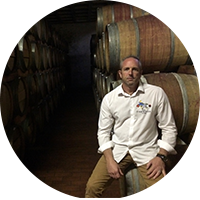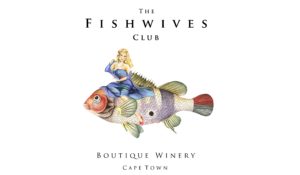Interviews
Pro Bono Clearinghouse Spotlight: Connecting Entrepreneurs and Attorneys
Published: April 28, 2021

Patrick Robertson, The Fishwives Club Boutique Winery, Cape Town, South Africa
When Patrick Robertson, owner of The Fishwives Club Boutique Winery, Cape Town, South Africa, was looking to expand into the United States, he knew he needed to be cautious and thorough—especially after two of his European importers registered his brand in Europe without his permission.
The entrepreneur heard about INTA’s Pro Bono Clearinghouse and was matched with INTA member Jaime Vining (Friedland Vining, P.A., Miami, Florida, USA), one of the attorneys who has volunteered to provide legal services.

Jaime Vining, Friedland Vining, P.A., Miami, Florida, USA
The Clearinghouse matches eligible clients facing trademark issues with INTA member attorneys who volunteer to provide services free of charge. INTA first introduced the Clearinghouse as a pilot program in the United States and recently expanded it into a global initiative. It is the only program of its kind dedicated primarily to trademarks.
Ms. Vining worked with Mr. Robertson to help him register his brand in the United States. In an interview with the INTA Bulletin, the two talk about their successful collaboration
 Mr. Robertson, when you started The Fishwives Club, how did you go about securing a trademark in South Africa?
Mr. Robertson, when you started The Fishwives Club, how did you go about securing a trademark in South Africa?
Patrick Robertson (PR): It was instinctual. I knew that the first thing I was going to do was register. I knew I wanted to build a brand and not just a company, and the winery I work with recommended it. They said, “Unlike a lot of wine farms that just use a family crest as a logo, this is actually unique and original.” I wanted to build an enviable brand, and some identities can be prone to theft.
What happened with your trademark in Europe that made you more aware?
PR: The importers went to their respective countries’ registrar and used my original artwork to register the brand as theirs. Nobody can believe two reputable European importers actually went ahead and did this. I was saddened by this, but perhaps that shows the latent power inside this brand.
How did you become aware of INTA’s Pro Bono Clearinghouse?
PR: I always thought the [The Fishwives Club] brand would thrive in America. When I approached a couple of law firms, I felt so out of my depth and I felt so vulnerable that they would see this little lamb coming up to them. A firm in Florida mentioned the Pro Bono Clearinghouse to me and said that they would help me get this off the ground. When I finally got to talk to Jaime [Vining], I just knew we were a match. It felt comfortable talking to her.
I would have looked at going into America, but I know the process would have been slowed down without the Clearinghouse.—Patrick Robertson
Ms. Vining, why has pro bono work always been important to you and your practice?
Jaime Vining (JV): I strongly believe our communities are substantially improved when we foster entrepreneurship. I think if we provide representation and voices to underserved segments of our society, it can only benefit the community, and entrepreneurship provides that. Being an entrepreneur can provide an alternate route to economic success; it’s increasingly a promising way out of poverty.
I started my law firm 10 years ago, so I am empathetic to entrepreneurs. I think that pro bono, particularly in intellectual property, is a place where you can see a direct impact on their business. If you can help an entrepreneur protect their branding, then they can only grow from there.
Can you each sum up your experience working with each other via the Pro Bono Clearinghouse?
PR: Jaime just made it so easy. I felt that she was very professional, and I was blown away by the level of service she delivered. She gave me advice that I wouldn’t have considered because she told me it would produce the best results. There was just a level of trust.
JV: Working with Patrick was easy and smooth. We talked about how important it was to protect the branding in America, and we put together an application that would achieve his goals. I’m thrilled that his application has been approved. We’re just waiting for the United States Patent and Trademark Office (USPTO) to issue the registration, but it’s been seamless.
Ms. Vining, how has being a part of the Clearinghouse contributed to your professional development and the growth of your firm?
JV: I have been working with the Clearinghouse since 2018, and I love being able to work with the clients because it’s international. They all have the same goal, and they all have such interesting business stories. The Clearinghouse gives me an opportunity to refine my trademark prosecution skills. It helps me strengthen my relationships with the examiners at the USPTO.
The clients are all so wonderful. They all have great stories and are so appreciative of your help and your time. I learn so much from hearing about how they’re all trying to get businesses established in the U.S.
Oftentimes, the last thing on your mind is securing a trademark, but you wouldn’t want someone to take your identity. Trademarks should be a top priority.—Patrick Robertson
Mr. Robertson, would you have been able to expand into America without the assistance of the Clearinghouse? Why or why not?
PR: I would have looked at going into America, but I know the process would have been slowed down without the Clearinghouse. I’m like a tortoise, very slow, and I think about things before I do them. But the Clearinghouse sped things up and made me confident to take the leap. By the time the brand launches, hopefully this year, all the paperwork and everything like that will be done, and I’ll be able to move forward with full confidence.
What would you say is the most important thing entrepreneurs need to know when it comes to intellectual property rights?
PR: Own who you are and be who you are from a marketing perspective. You’ve got to identify your brand persona; you are building a personality for your brand. Your brand is your name. If someone stole your name you can imagine how crazy that would feel. Oftentimes, the last thing on your mind is securing a trademark, but you wouldn’t want someone to take your identity. Trademarks should be a top priority.
From each of your perspectives, why is it important for small and medium-sized enterprises to register trademarks?
JV: Trademarks are the most important asset of your company; I can’t stress that enough. Having a registered trademark on file gives the business owner additional protection. It diminishes the burden of proof against infringers; it’s the most efficient way to obtain a preliminary injunction against infringers and recover damages. The most important thing is that all powerful “R” in a circle that every company wants to use. It adds prestige and scares off would-be infringers.
PR: That “R” with a circle around it—if you’re lucky enough to sell your brand one day, you’re selling that R. They’ll pay a lot of money for that. A registered trademark tells a story about the quality of your product instantly, and that is extremely powerful.
In my view, pro bono programs go hand in hand with a law firm’s commitment to progressive causes.—Jaime Vining
Ms. Vining, how do you see pro bono programs fitting into diversity, equity, and inclusion efforts at law firms?
JV: The phrase “pro bono” is derived from the Latin phrase “pro bono publico,” which means “for the public good.” In my view, pro bono programs go hand in hand with a law firm’s commitment to progressive causes. Creating more opportunities for underrepresented groups to have success in the workplace is quite literally good for the public.
What’s the procedure if someone wants to get involved in the Clearinghouse?
JV: To be a client of the Clearinghouse, you need to show a valid trademark issue and financial need, which can be provided by tax information or the past 12 months of bank statements. For volunteers, you need to be licensed as an attorney, be in good standing to practice in your jurisdiction, carry malpractice insurance, and be a member of INTA. We’re always looking for volunteer attorneys, especially attorneys outside of the U.S.
How has being a member of INTA helped in your daily practice?
JV: I just love INTA. It’s an amazing organization. I’ve been a member for a little over a decade, and I can’t even tell you how many great connections I’ve made through my committee work and through meetings. I keep in touch with people who I met over 10 years ago when I was a baby lawyer and first started attending INTA meetings. It’s the only organization of its kind dedicated to trademarks, and since my practice is dedicated to trademarks, it’s so important to me personally and professionally.
Although every effort has been made to verify the accuracy of this article, readers are urged to check independently on matters of specific concern or interest.
© 2021 International Trademark Association